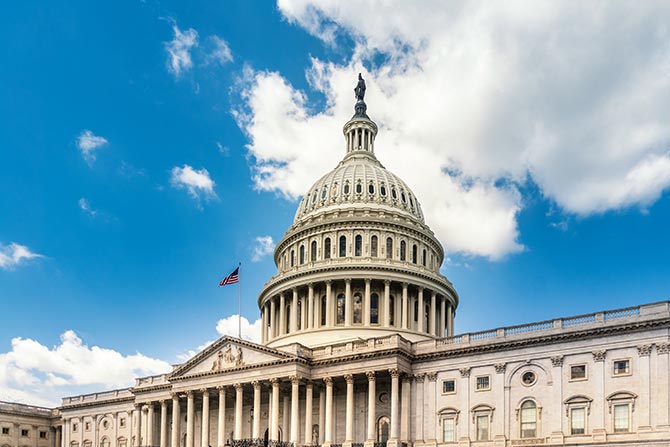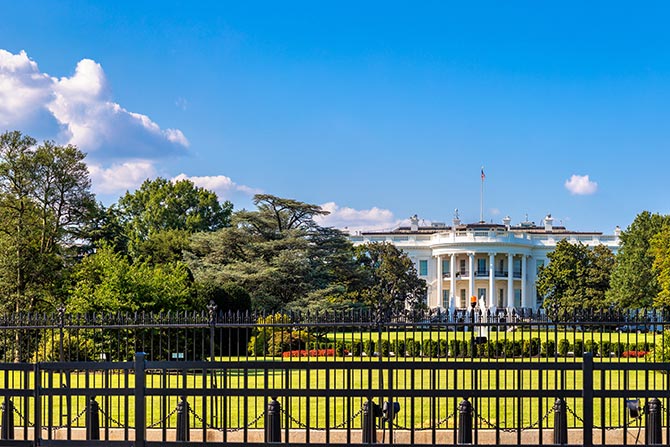NADA continues to advocate aggressively on issues critical to the retail automotive industry. The following is an update on key developments. Please feel free to contact me at rdesilva@libertycarsnj.com with any questions.
Congress Votes to Revoke CARB ZEV Mandates
In a major victory for auto dealers and consumers, Congress passed joint resolution H.J.Res.88, under the Congressional Review Act (CRA), to revoke the California Air Resources Board (CARB) waiver for its Advanced Clean Cars II rule (ACCII), which would have banned sales of both gas-powered and hybrid vehicles.
Reflecting on the House’s bipartisan passage of the resolution, NADA emphasized the consumer impact:
“NADA lauds the House of Representatives’ bipartisan passage of H.J. Res.88, which would revoke California’s rule to ban gas and hybrid vehicles in 12 states. Because California’s mandate forces automakers to deliver EVs for sale irrespective of consumer demand, … the rationing of new gas cars will leave consumers with far fewer vehicle choices and will force consumers throughout the country to pay more for new and used cars.”1
Following the Senate vote, NADA continued its support, focusing on the broader implications:
“NADA applauds the Senate for its passage of legislation which stops California regulators from banning gas and hybrid vehicles in twelve states. This unrealistic mandate, coupled with an insufficient and unreliable charging infrastructure, would have drastically reduced consumer choice and raised prices for new and used cars and trucks for all Americans.”2
NADA and ATD also supported heavy-duty resolutions H.J.Res.87 and H.J.Res.89, which also passed. These respectively revoke California’s waivers to ban new heavy-duty diesel trucks and impose stricter NOx limits than federal standards. On June 12, 2025, President Trump signed these resolutions into law, so these CRAs will now block the EPA from granting similar waivers without Congressional approval.
Impact of Tariffs
On April 29, President Trump announced an Executive Order exempting automobiles and auto parts from steel and aluminum tariffs. Under the order, auto parts will be subject only to the auto tariff, and automobiles in noncompliance with the United States-Mexico-Canada-Agreement (USMCA) and parts from Mexico and Canada will no longer face both the 25% “fentanyl” tariff and the 25% auto tariff. OEMs will also receive a credit toward tariffs on imported parts (including those payable by suppliers), applicable to vehicles assembled in the United States between April 3, 2025, and April 30, 2026.
NADA has been outspoken with the Administration, Congress, and regulators on the negative impact tariffs have on vehicle affordability, sales, and dealership viability.
EPA Reconsiders Unrealistic ZEV Mandate
Current EPA Multi-Pollutant Emissions Standards for light- and medium-duty vehicles, and Greenhouse Gas (GHG) Emissions Standards for heavy-duty vehicles require the increase of ZEV sales volumes beginning by model year 2027, which must reach 56% by 2032. However, the EPA announced in March that it will be reviewing those standards along with the heavy-duty low NOx regulation, setting more stringent diesel tailpipe standards for heavy-duty trucks.
In February, the Transportation Freedom Act (S.711) was introduced, which would repeal the EPA’s overly aggressive emissions rules for light- and heavy-duty vehicles, repeal NHTSA’s CAFE standards, and revoke California’s ability to regulate vehicle emissions. A House companion bill (H.R.2814) was introduced as well, and in support of this legislation, NADA is urging members of Congress to co-sponsor S.711/H.R.2814. NADA and ATD will continue to work with the current administration to push for more realistic emissions regulations.
Nada and ATD Advocate for Reasonable Emissions Standards
On September 22, 2025, NADA and ATD submitted comments to the EPA supporting the repeal of Biden-era GHG emissions standards, which they argue have raised vehicle costs, restricted consumer choice, and weakened industry competitiveness.
The associations stressed that the prior rules were unrealistic, relying on assumptions of rapid EV adoption without accounting for inadequate charging infrastructure or consumer demand. As NADA noted in its filing, the regulations were “premised on overly aggressive assumptions regarding future EV market penetration … [and] EPA’s final rule should set technology-neutral emissions standards that maximize, not inhibit, fleet turnover.”
NADA and ATD urged the EPA to pursue a more balanced, technology-neutral approach that accommodates a broad range of powertrains, including internal combustion, hybrids, and alternative fuels, while still advancing emissions reductions. The EPA is expected to finalize its reconsideration later this year, though legal challenges are anticipated, and NHTSA is preparing a separate rulemaking that could significantly revise CAFE standards.
“One Big Beautiful Bill Act” Moves Forward — Now Enacted
President Trump officially signed H.R.1, known as the “One Big Beautiful Bill Act,” into law on July 4, 2025. The federal law includes provisions to repeal Biden-era EV mandates.
This addresses several NADA tax priorities. Key highlights of the law include:
- Permanent Section 199A Deduction: Increasing the deduction to 23%
- Permanent Income Tax Rate Extensions
- Increased Estate/Gift Tax Exclusion: Raising the basic exclusion limit to $15 million (individual) and $30 million (joint)
- Bonus Depreciation: Authorizing 100% bonus depreciation through December 31, 2029
- Increased Section 179(b) Limits: Boosting depreciation limits from $1 million to $2.5 million
- Increased SALT Cap Deduction: Raising the State and Local Tax (SALT) deduction cap to $40,000 per household
- Auto Loan Deductibility: Introducing a $10,000 cap and Modified Adjusted Gross Income (MAGI) limits for auto loan deductibility for U.S. assembled vehicles
- Eliminates the New EV Credit (30D) after December 31, 2025, and December 31, 2026, for manufacturers that have sold less than 200,000 EVs since 2009
- Eliminates the EV Lease Credit (45W) after December 31, 2025, except for buyers who entered into a contract before May 12
- Eliminates the EV Used Credit (25E) after December 31, 2025
Direct Sales Challenges
The longstanding dealer franchise system continues to face pressure from emerging market entrants pursuing direct-to-consumer sales strategies. In recent months, the California New Car Dealers Association (CNCDA) and a coalition of Volkswagen and Audi dealers in Florida have filed lawsuits against Volkswagen Group and its subsidiary Scout Motors Inc., seeking to halt Scout’s proposed direct-sales model. In addition, CNCDA is closely examining Sony Honda Mobility’s plans to sell its Afeela 1 electric sedan directly to consumers.
NADA remains steadfast in its position that the franchised dealer model is the most effective and consumer-friendly method of selling and servicing vehicles. The Association has pledged its full support to state and metropolitan dealer organizations in defending the franchise system against any efforts to bypass or diminish its critical role in the automotive marketplace.
Catalytic Converter Anti-Theft Legislation
NADA anticipates the reintroduction of the Preventing Auto Recycling Thefts (PART) Act, aimed at curbing the nationwide surge in catalytic converter theft. The proposed legislation would require manufacturers to stamp unique, traceable identifiers on catalytic converters at the time of assembly, making stolen units easier to track and recover. It would also establish federal criminal penalties for the theft, sale, trafficking, or known purchase of stolen catalytic converters.
NADA will continue to monitor the bill’s progress and provide timely updates to dealers, along with guidance on how they can work with their Congressional representatives to advance important, pro-dealer legislation.








